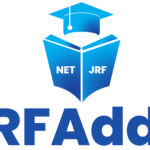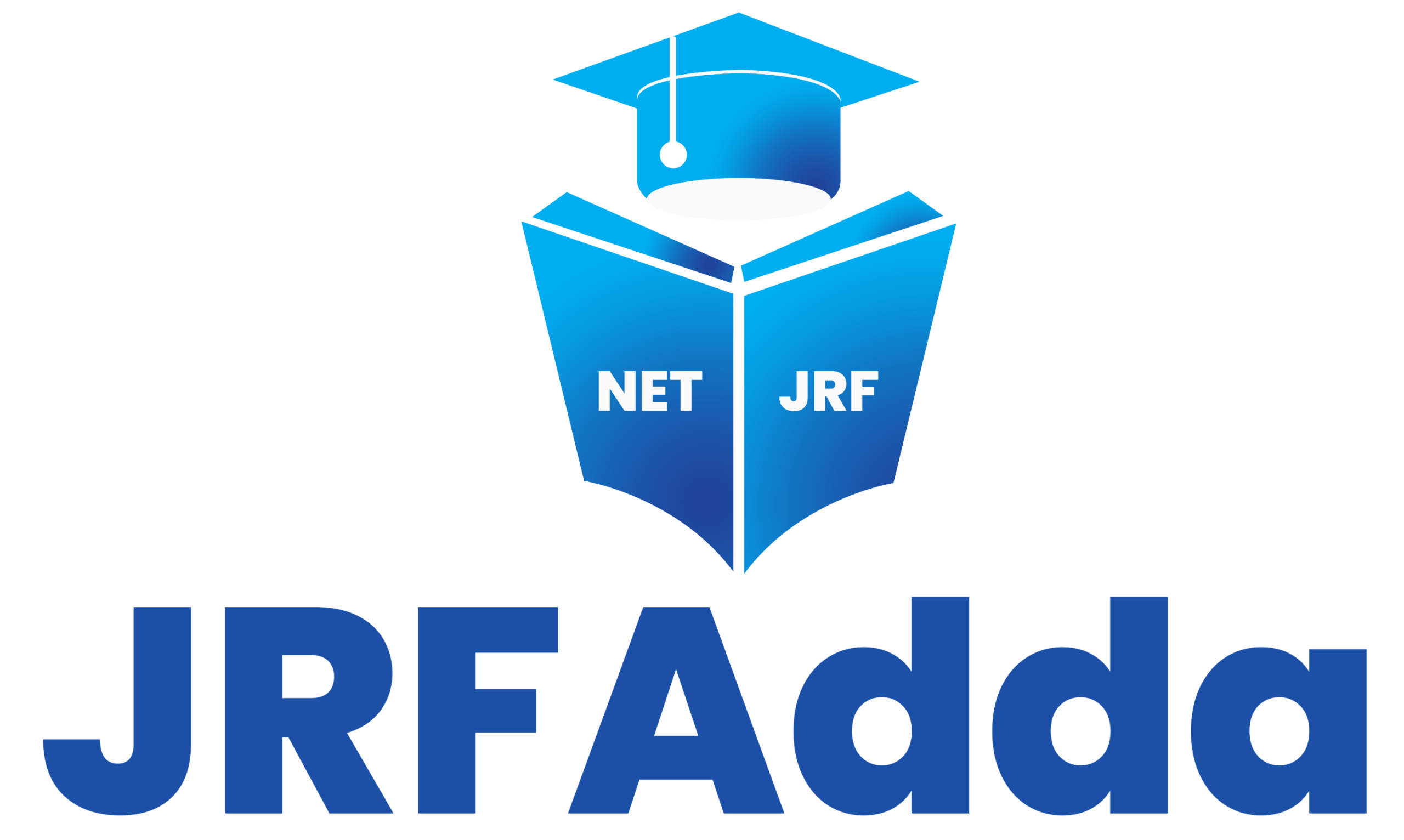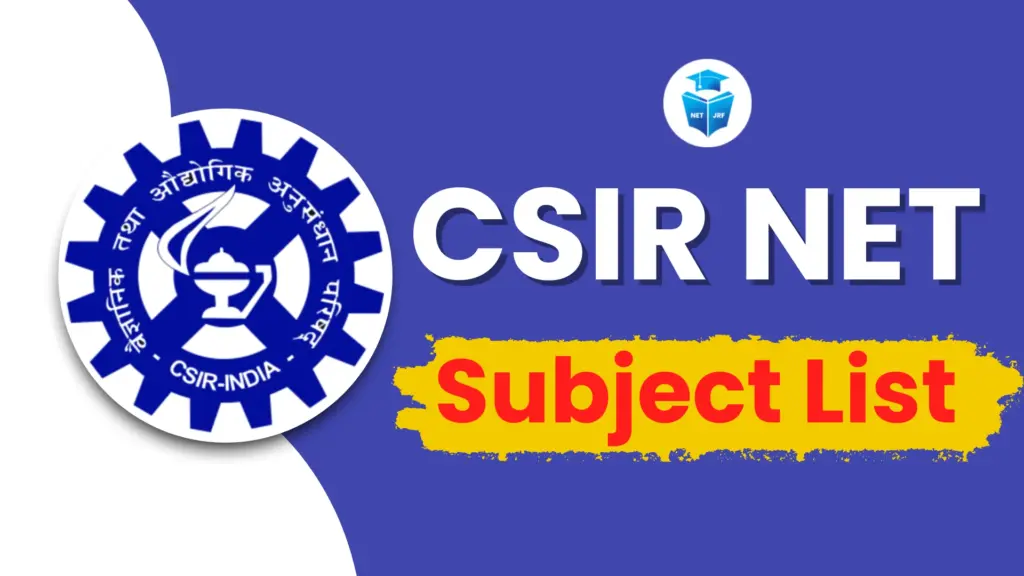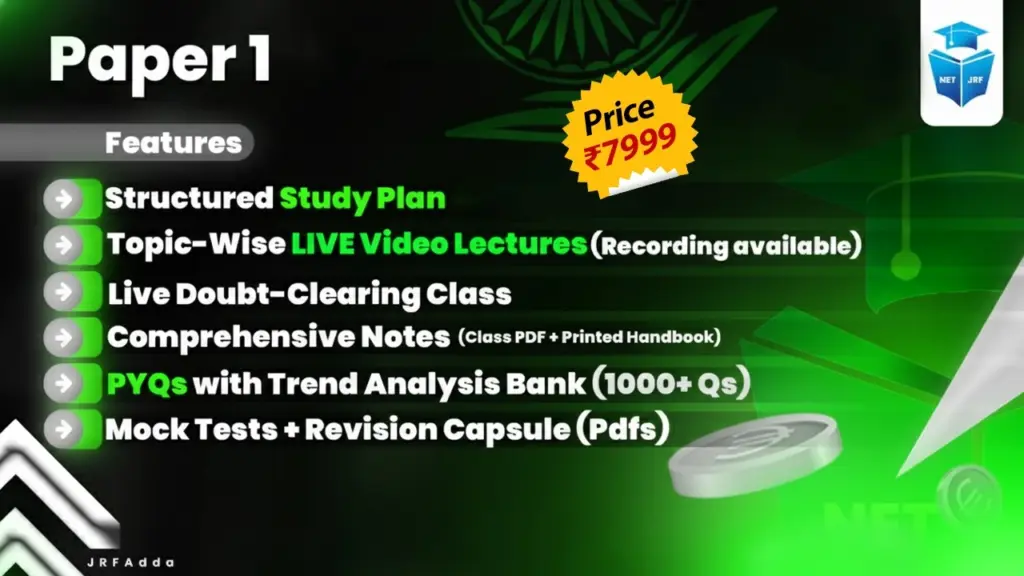The CSIR NET exam is one of the most prestigious competitive exams in India, conducted by the National Testing Agency (NTA) on behalf of the Council of Scientific and Industrial Research (CSIR) and the University Grants Commission (UGC). It is held twice a year, typically in June and December, and is designed to assess candidates for Junior Research Fellowship (JRF) and Assistant Professor positions across Indian universities and research institutes.
What is CSIR NET?
The Council of Scientific and Industrial Research National Eligibility Test (CSIR NET) is a national-level examination that determines the eligibility of Indian nationals for JRF and Lectureship/Assistant Professorship positions in Science and Technology fields.
The test evaluates candidates based on their subject-specific knowledge, research aptitude, and general reasoning abilities. The CSIR NET exam pattern is common across all subjects, with three parts – A, B, and C. While Part A is a general aptitude section and common for all candidates, Part B and Part C are subject-specific and assess domain knowledge.
All Subjects of CSIR NET Exam
The CSIR NET Subject List 2025 comprises five core science disciplines. These subjects are:
- Chemical Sciences
- Earth, Atmospheric, Ocean and Planetary Sciences
- Life Sciences
- Mathematical Sciences
- Physical Sciences
Each subject is assigned a unique subject code, and candidates must choose their preferred subject while filling out the application form. It is essential that candidates opt for the subject corresponding to their postgraduate qualification.
CSIR NET Subject List 2025 with Codes
| Code | Subject Name |
| 701 | Chemical Sciences |
| 702 | Earth, Atmospheric, Ocean and Planetary Sciences |
| 703 | Life Sciences |
| 704 | Mathematical Sciences |
| 705 | Physical Sciences |
These five subjects form the entire CSIR NET subject list and cater exclusively to science stream candidates. Each subject has its own syllabus, marking scheme, and question paper pattern.
CSIR NET Subject List: Detailed Breakdown
Chemical Sciences
Subject Code: 701
The Chemical Sciences subject is ideal for candidates with a postgraduate degree in Chemistry or allied fields. The question paper covers a broad spectrum of topics across organic, inorganic, and physical chemistry, along with interdisciplinary topics.
Exam Pattern Overview:
- Part B: 40 questions, attempt 35; +2 for correct answers, -0.5 for wrong ones; Total: 70 Marks
- Part C: 60 questions, attempt 25; +4 for correct answers, -1 for wrong ones; Total: 100 Marks
Major Topics:
- Physical Chemistry
- Organic Chemistry
- Inorganic Chemistry
- Interdisciplinary Chemistry
Earth, Atmospheric, Ocean and Planetary Sciences
Subject Code: 702
This subject caters to candidates with backgrounds in geology, geophysics, meteorology, and oceanography. It assesses knowledge of Earth’s physical systems and planetary science.
Exam Pattern Overview:
- Part B: 50 questions, attempt 35; +2 for correct answers, -0.5 for wrong ones; Total: 70 Marks
- Part C: 80 questions, attempt 25; +4 for correct answers, -1.32 for wrong ones; Total: 100 Marks
Important Topics:
- Geology and Applied Geology
- Physical Geography
- Meteorology
- Ocean Sciences
- Geophysics
Life Sciences
Subject Code: 703
This is one of the most popular CSIR NET subjects, designed for candidates from biology, biotechnology, zoology, botany, and allied fields. It tests both fundamental and applied biological sciences.
Exam Pattern Overview:
- Part B: 50 questions, attempt 35; +2 for correct answers, -0.5 for wrong ones; Total: 70 Marks
- Part C: 75 questions, attempt 25; +4 for correct answers, -1 for wrong ones; Total: 100 Marks
Key Topics:
- Molecular Biology
- Cell Biology
- Developmental Biology
- Ecology and Evolution
- Plant and Animal Physiology
- Genetics and Inheritance
- Applied Biology
Mathematical Sciences
Subject Code: 704
Mathematical Sciences is for candidates with an academic background in mathematics, statistics, or applied mathematics. The paper includes both theoretical and applied mathematics topics.
Exam Pattern Overview:
- Part B: 40 questions, attempt 25; +3 for correct answers, -0.75 for wrong ones; Total: 75 Marks
- Part C: 60 questions, attempt 20; +4.75 for correct answers, no negative marking; Total: 95 Marks
Important Areas:
- Linear Algebra
- Differential Equations
- Classical Mechanics
- Complex Analysis
- Topology
- Integral Equations
- Descriptive and Exploratory Data Analysis
Physical Sciences
Subject Code: 705
This subject is designed for candidates from physics and related streams. It evaluates knowledge in classical and modern physics, with an emphasis on conceptual clarity and numerical problem-solving.
Exam Pattern Overview:
- Part B: 25 questions, attempt 20; +3.5 for correct answers, -0.875 for wrong ones; Total: 70 Marks
- Part C: 30 questions, attempt 20; +5 for correct answers, -1.25 for wrong ones; Total: 100 Marks
Core Topics:
- Electromagnetism
- Classical and Quantum Mechanics
- Thermodynamics
- Nuclear and Particle Physics
- Condensed Matter Physics
- Electronics
- Mathematical Physics
What Are the Subjects in CSIR NET 2025?
The CSIR NET is conducted in five core science subjects. These are Chemical Sciences, Life Sciences, Physical Sciences, Mathematical Sciences, and Earth Sciences. These subjects provide comprehensive coverage of the major disciplines in natural and mathematical sciences, ensuring wide participation across different science domains.
Check out CSIR NET Exam date 2025 here!
How to Choose the Right Subject from the CSIR NET Subject List?
When selecting a subject, always opt for the one in which you hold your postgraduate degree. This ensures your academic preparation is aligned with the CSIR NET syllabus and increases your chances of success.
Tips for choosing the right subject:
- Match it with your M.Sc. specialization
- Review the CSIR NET syllabus for the subject
- Consider your interest and future research goals
- Evaluate the availability of study resources and coaching for that subject
Conclusion
Understanding the CSIR NET Subject List 2025 is a fundamental step for every aspirant. With only five subjects to choose from, candidates must be strategic and well-informed about the eligibility criteria, syllabus structure, and subject-wise exam pattern.
CSIR NET offers a golden opportunity to pursue a career in research and academics. By choosing the right subject and preparing with the correct approach, you can achieve your goal of becoming a JRF awardee or Assistant Professor.
CSIR NET Subject List FAQs
What are the subjects in CSIR NET 2025?
The CSIR NET 2025 includes five subjects: Life Sciences, Physical Sciences, Chemical Sciences, Mathematical Sciences, and Earth Sciences.
Can I apply for more than one subject in the CSIR NET exam?
No, candidates can apply for only one subject per attempt as per the CSIR NET application guidelines.
Is Life Science the same as Biology in CSIR NET?
Life Sciences in CSIR NET encompasses broader biological sciences including cell biology, molecular biology, genetics, ecology, and physiology.
Which CSIR NET subject is easiest?
The ease of a subject depends on your academic background. For biology graduates, Life Sciences may feel easier, while math majors may prefer Mathematical Sciences.
Can engineering graduates apply for CSIR NET?
Generally, CSIR NET is for science postgraduates, but some engineering backgrounds may apply if their specialization aligns with one of the subjects, especially Mathematical or Earth Sciences.
















